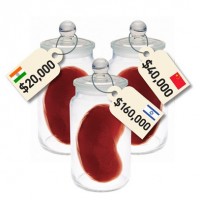Let human bodies stay priceless, by Margaret Somerville
It’s been reported that two Canadian companies are willing to pay blood donors to get their plasma. Plasma is used to produce immunoglobulin, a high-cost treatment for diseases that include cancer.
Is there something inherently wrong in commodifying and commercializing the human body, selling our organs or tissues?
Some people believe it offends human dignity to treat the body as an object and just another item for sale. Others see respect for individual autonomy and choice as required to respect human dignity and allowing sale as necessary to honour these values. These two positions focus at different levels and embrace different concepts of human dignity.
The former sees dignity as inherent simply to being human and is concerned to uphold respect for both the dignity of each individual person and human dignity, in general, at the societal level. This requires that the human body be “hors de commerce.”
Adherents of the latter view see individual persons having control and choice as necessary to respect their dignity, hence, if they want to sell their blood, they must be allowed to do so.
Ethics is always concerned with facts, especially about risks and harms. We have tended to assume a non-commercial blood supply is safer than a commercial one, on the grounds that people who sell blood are more likely to present health risks to the system than those who donate. That might not always be correct, because of other factors influencing decision-making that affect the safety of the blood system. Some commercial US blood banks proved to be safer than the Canadian blood system at the beginning of the HIV/AIDS epidemic. The owners acted faster to take as many preventive measures as possible because they feared law suits and financial loss.
Some people propose that the benefits of a market in tissues and organs for transplant would outweigh any risks and harms. For instance, Oxford philosopher Janet Radcliffe-Richards argues that setting up a market for organs is the best way to increase the supply and overcome present serious shortages. This is a social utility rationale and justification. In contrast, others fear that paying for plasma would divert people from being whole blood donors to paid plasma ones and cause a shortage of whole blood and also increase the costs of our health-care system.
Then there are justice issues: People who sell their organs or tissues are often poor and vulnerable, especially if they don’t live in developed Western countries, and those who buy are usually privileged persons. Connected with this reality is the danger of exploitation, bribery and corruption and, even when that is not the case, the disturbing image of middlemen making large profits out of one person’s poverty and another’s dire medical need.
Some respond that physicians and nurses are paid, and payment for tissues and organs is no different. But our moral intuition tells us there’s a difference between being paid for one’s services and selling one’s body or access to someone else’s body. In a different context, the old legal custom of the barrister having a small pouch behind his shoulder on the back of his gown, into which, after the trial, the client placed what he could afford to pay without the barrister knowing the amount, instantiates a comparable intuition.
Read the complete article in MercatorNet
